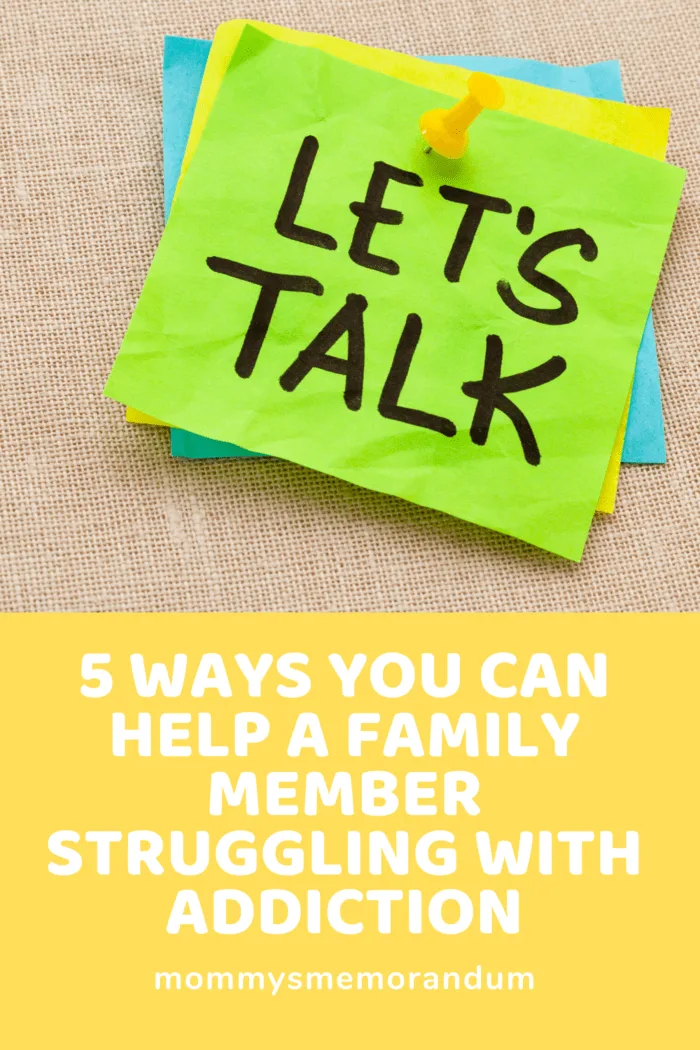5 Ways You Can Help a Family Member Struggling With Addiction
When you have a family member who is struggling with addiction, it’s not clear cut how you should respond.
It might be your first instinct to want to do everything you can for them, but sometimes you run the risk of becoming an enabler to their addiction.
You need to create a plan and figure out the best course of action you should take.
Here five ways you can help a family member who is struggling with addiction.
Talk to them
Communication is the key to maintaining any healthy family relationship.
Whether it's your father, mother, brother, or sister, you want to make sure you're in communication with them during their recovery—all it takes a short phone call.
How you talk to them matters.
You'll want to keep your patience and not play the blame game for any negative feelings.
Encourage them and don’t always talk about their addiction.

Learn about their addiction
In order to better understand what your loved one may be going through, you'll want to educate yourself on what exactly is they're dealing with.
Addiction takes many forms, and there are many resources that can help you learn about them.
The more knowledge you're armed with, the better you'll be able to help your loved one.

Create a healthy boundary
In any relationship, you want to set a boundary not just for your sake but also for your loved one's well-being. Setting a healthy boundary can help you avoid enabling their addiction.
Some examples include establishing a rule where they will be no drugs or alcohol when you're near each other, or, if your loved gets caught using by the police, you won't bail them out.
It may come off as harsh, but in order for your loved ones to get better, they need space, guidance, and rules. This will allow them to learn their actions have consequences.
Be part of their support team
Your loved one will need all the support they can get, and taking an active role in your loved one's recovery is a great way to help them out.
There’s not a fixed role you have to be in, but there are certain types of people they’ll need in their recovery.
Some examples include exercise buddies, health advocates, and even someone to help with day-to-day chores.

Help find professional help
There are only so many families can do for their loved ones before they need to seek professional help.
While you can't force your loved ones to seek treatment, you can help guide them and look into programs you think would benefit them.
When undergoing therapy sessions, you should always respect your loved one’s privacy.
Sure, you’ll want to check in on them to see if they are attending, but you shouldn’t pry into what is being talked about.
If your loved one is willing to share, they will.
[caption id="attachment_106830" align="aligncenter" width="1000"] If your loved one is willing to share, they will. #addiction #help #family[/caption]
If your loved one is willing to share, they will. #addiction #help #family[/caption]If you think it's a good option, you can take family addiction therapy sessions with your loved one.
You might find this treatment to be beneficial for the whole family as well as the person struggling with addiction, as many times when addiction enters the family, it takes a toll on everyone.
Your family can learn what rules and boundaries need to be set and address other issues.
Addiction weighs hard on families, but it doesn't have to be the thing that breaks them.
You may find that through your loved one's addiction, your family may come out stronger by uniting to help each other during this tough time.

Comments
Post a Comment